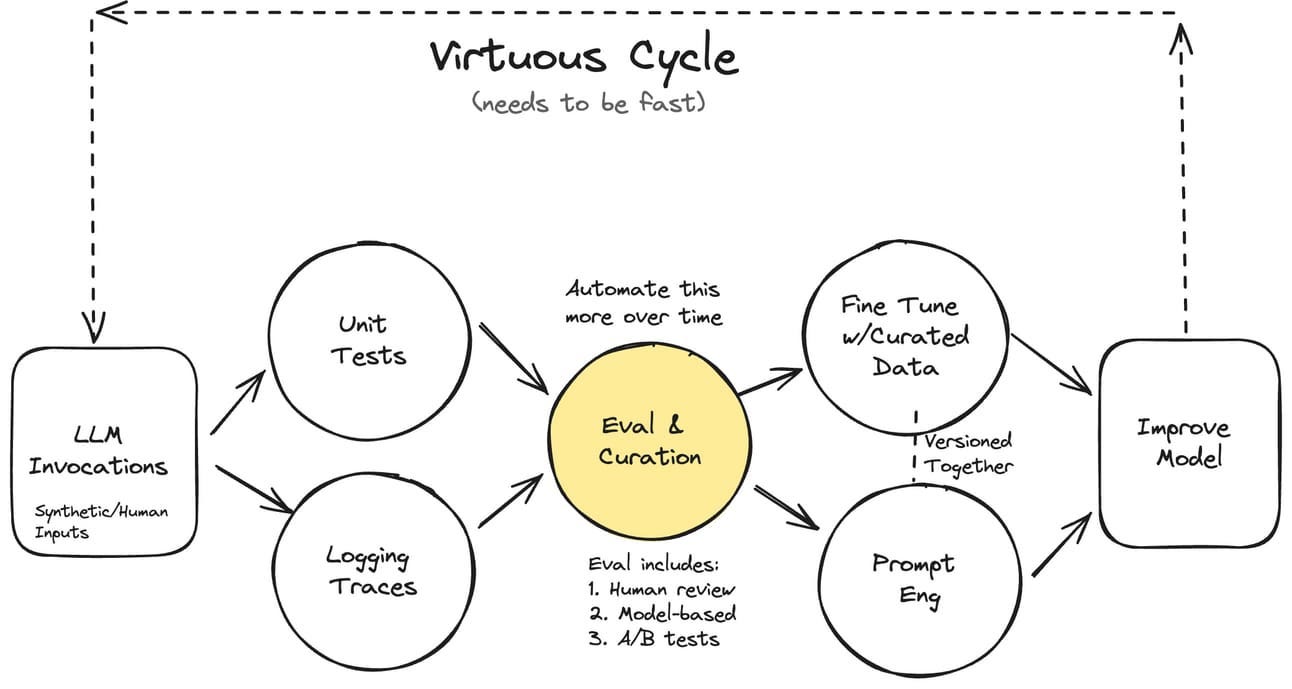20250504
“Why should a story end when production costs are cheap and when participants in the story can steer the story? Imagine playing a video game that doesn’t render, but generates; it adapts to your gameplay, with new levels rapidly created as you go. You can’t “beat” the game like you’d beat an old console game you picked up at GameStop. It just keeps going as long as you keep playing.” 2025 will see the first mainstream “infinite” generative game, a never-ending game that adapts to player decisions in real-time. This prediction is a reach—I wouldn’t be surprised if in December, I’m carrying this one over to 2026—but it’s inevitable. The future of gaming is coming, fast. - Crazy ideas
People: Second hand luggage. Art as therapy. D&D as a cure for loneliness. Law against domestic violence hurts women.
Business: Businesses with typewriters.
Planet: Greenwashing fines. New antibiotics. Urban spaces for wildlife. Some trees like thunderstorm.
Security: UK position on cybersec and resilience. NSA boss fired. Was Houdini a spy?
Futures: Future of jobs by WEF (PDF). Futures of longevity (PDF). Being human in 2035 (PDF).
Tech: Flame MUD. Tech exploration of sustaining a 250-year long trip to another planet.
AI: AI failure rates. DeepSeek runs locally at 20toks/s on M3.

Typewriter Dreams: A Dialogue with the Future
Milo Whittaker was a typewriter repairman in a cosy Rhode Island shop that smelled of old ink and nostalgia. He kept his doors open even as the world outside buzzed and blinked with the electronic chaos of the twenty-first century. Customers filed in, gravitating toward the battered machines like moths to a flame, eager for the tactile certainty those clunky keys provided. “This,” he would often proclaim, gesturing grandly at a gleaming Underwood, “is a device that cannot be hacked by your average Russian bot or a rogue AI trying to sell you overpriced virtual chicken.”^1
On one particularly stormy Tuesday, a woman with an enigmatic air sauntered in, her presence as commanding as a stage magician’s. She was Sasha, a coder at DeepSeek, and seemed decidedly out of place among the tik-toks and typebars. Perhaps she sought refuge from the world’s ceaseless electronic chatter; or perhaps her latest large language model required a more tactile interface for testing. “What’s your security policy against machine learning?” she quipped, raising an eyebrow at the wall adorned with charmingly antiquated posters of Houdini and his secrets.^2
Whittaker chuckled—he thought he could evade the mathematical precision of her inquiry by diverting her attention to a typewriter brochure featuring an impressive lasso-shaped knot^3. But much like Houdini’s most cunning escapes, the conversation twisted back sharply. “Ever heard of new antibiotics derived from soil?” she said, revealing a daunting glow in her eyes. It seemed she had a thing for combining the uncombines and explaining complex ideas with the ease of a wizard revealing their tricks.
Milo considered the implications of farming soil for future medicines. “What’ll they think of next? A lasso-based healthcare initiative?” His footnotes continued to scribble themselves away in his mind, each idea more absurd than the last.
As if amplifying the absurdity, the pair’s discussion snagged on urban wildlife as you might catch your shoe on a loose cobblestone. “We ought to coax those bin chickens to draft a public works proposal,” said Milo, who could hear the sound of a Peregrine Falcon screeching at the idea of integrating more green spaces. “I imagine they would suggest curbside recycling bins at every corner.” At that, Sasha smirked, potentially imagining a future where the natural and mechanical intertwined harmoniously.
As the afternoon wore on, the art of storytelling emerged from their conversation. They pondered the legacy of performers like Houdini, transforming the past into a series of surprising plot twists, each anecdote waiting for its moment to shine. “If we can get Dungeons & Dragons to the top of the charts, elevate mythological tales through AI, who’s to say we can’t shape how the future perceives magic itself?” Sasha proposed with a dishes-done, now-what tone.
“Fascinating,” Milo said, tapping the typewriter as if the clack of the keys might somehow summon inspiration. He liked the notion that magic could erupt from the mundane, transforming a simple chat about typewriters into an intellectual dance of ideas.
As she left, Milo emerged from the ether of ink, imagination blending like colors on a canvas soaked by rain. With an invigorated spark, he decided it was time to encourage creativity beyond the confines of envelopes. Perhaps the next chapter of humanity would involve inviting AI into storytelling, integrating the chaos of city life with a tasteful brush of narrative. In his mind, he fantasized about rewilding the very words escaping his keys; “The world awaits,” he thought, “for a renaissance uniquely our own, where magic is code, and every story weaves a bit of the old along with the new.”
^1 Because let’s face it; one finger before the churn of gears and you can spell disaster.
^2 Also highly esteemed in their field of fiendish algorithms.
^3 Caution advised for rogue algorithms trying to ply their craft among fools with weary souls.

